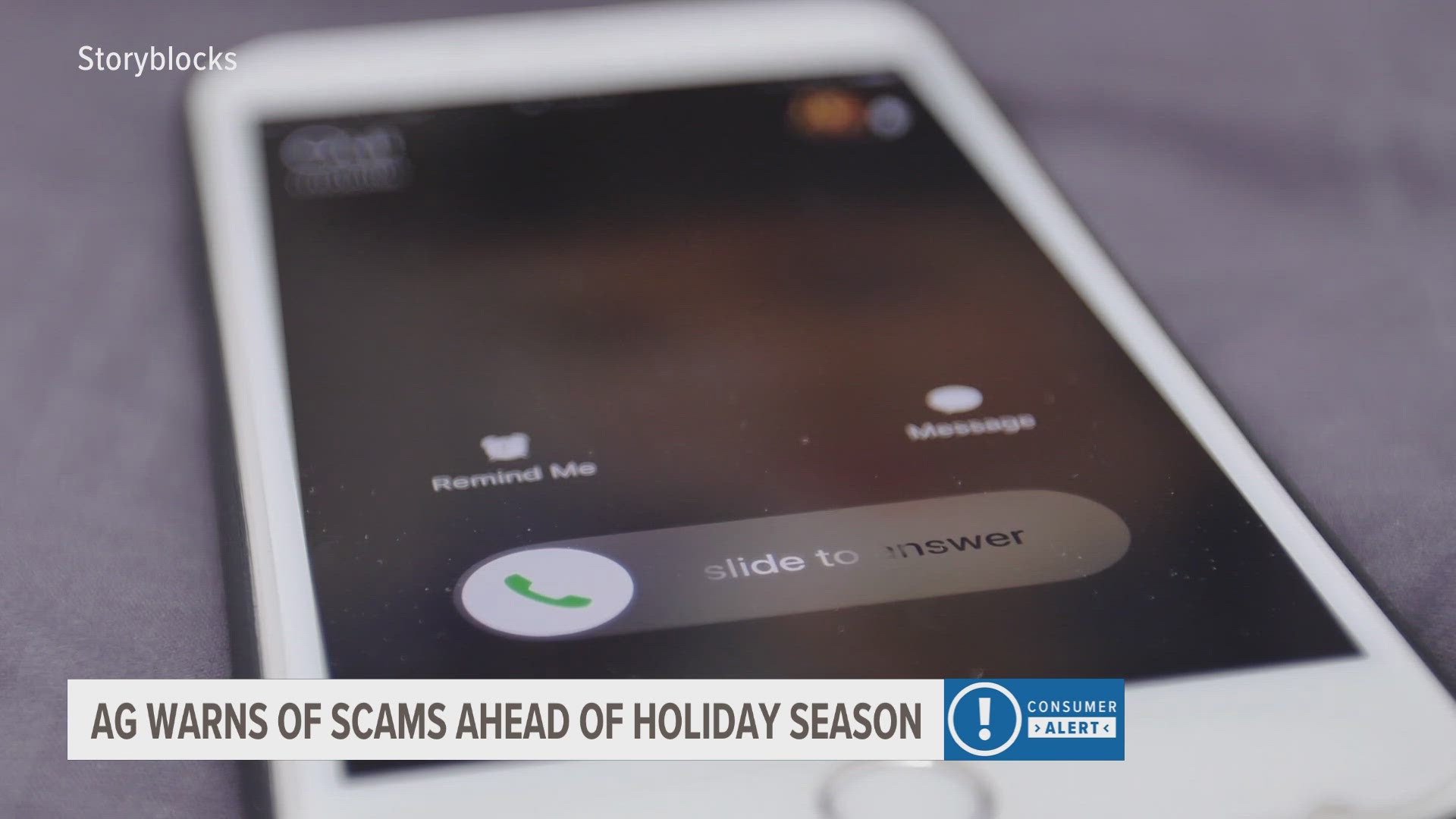GRAND RAPIDS, Mich. — For some, it's "ho ho ho" during the holidays. But for others, it's "oh no no," as Americans have fallen victim to a seemingly growing number of consumer scams.
An updated study out last week from the Better Business Bureau found that reports to the organization's Scam Tracker rose more than 125% last year.
Here in Michigan, the state's attorney general signaled it's a big issue.
"Every minute or two that you spend just scrolling around there, you're going to be able to avoid some scams that might not seem so obvious to you, but if you fall for them, they're really going to hurt you in the pocketbook," Attorney General Dana Nessel (D-Michigan) told 13 ON YOUR SIDE.
Potential threats noticed by Nessel's office have been comprised of a wide range, including traditional online shopping scams.
"If all of a sudden you see this great deal, and it's a company that you've never heard of before, and maybe it's located overseas, you want to be especially careful, right?" Nessel said. "You don't know if they're real. You might be punching in your credit card number, and it's a total scam. You get nothing."
Some, the attorney general said, could even be fake phone calls from supposed family members or friends.
"It's still going to be a situation where your grandson Timmy calls," she said. "He's coming in for the holidays, but he's at Newark Airport and somebody stole his backpack, and now he doesn't have credit cards or a phone. That's why he's calling you from a strange number, and he really needs you to wire him some money right away or even provide information your bank account. Please don't do it. It is likely a scam."
This scam is one Nessel said has taken a new, much more deceptive twist as artificial intelligence capabilities have grown.
"It's so easy now for somebody to mimic your grandson, it's going to sound exactly like him," Nessel said. "You won't even be able to tell the difference."
But preventing a scam can be done, she said - and it all lies in being alert.
Prevention methods can depend on the method with which you're communicating.
For example, Nessel explained, in the instance that someone makes one of the aforementioned calls, try asking the caller to answer certain details only they would know before going any further.
In instances of online shopping and delivery, one might take time to research the company or vendor and not be quick to jump on deals that seem too good to be true or links they can't immediately trust.
"So, you've got to be extra careful," Nessel said. "You are going to absolutely get something that says that you have a package, it's waiting at the U.S. Postal Service, all you've got to do is click on that link to get some more information about it. Don't click on that link."
It's similar advice to that offered by the BBB as they also look to alert consumers to potential dangers this holiday season.
“Be wary of any price that seems too good to be true, especially for name-brand items,” said BBB in Western Michigan President and CEO Lisa Frohnapfel in a Nov. 21 release. “Only shop from sites you know and trust, or do your research on sites like BBB.org before you give anyone your money or payment information.”

